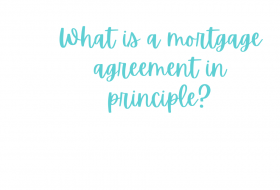Want to know if it’s possible to get a mortgage when you are on a fixed term contract?
While it may impact the range of lenders and rates available to you, the right preparation can help improve your options.
Which is why we’ve put together a comprehensive guide to help you achieve your dream of getting on the property ladder.
Can You Get a Mortgage on a Fixed Term Employment Contract (UK)?
The short answer is yes, it is possible. Although it will depend on things like contract length, affordability, how long you’ve been in the role, and more. We’ll discuss that shortly.
Fixed term contracting or temporary work is a viable choice for many people. It can offer several advantages, particularly if your personal circumstances influence your employment options.
For example, the industry you work in may only need contractors instead of permanent employees. Perhaps you offer a specialised service which attracts higher rates of pay, or you simply prefer the flexibility and diversity that contracting provides.
Either way, we think your choice shouldn’t stop you getting a mortgage. Admittedly, it can be a little more complicated, so here’s what you need to know.
Fixed Term Contract – Employed vs. Self-Employed: What does it Mean?
Knowing the type of work you do and how it can affect your mortgage application can be confusing. To be clear – a fixed term contract, or temporary contract, is one where you are not a permanent employee of a company but contracted to work for them for a fixed period of time.
There are two main types of fixed term contracts:
Fixed Term Employment Contract
A fixed term employment contract is when you are employed by an organisation on a temporary basis and earn a salary while paying tax through PAYE. This is what we are focusing on in this article.
Fixed Term Contract – Self-Employed
If you are on a fixed term contract as a freelancer and not employed by the company, you may be considered self-employed (and responsible for paying your own taxes). In this case, you would be looking for a mortgage as a freelancer or self-employed person.
Is it Hard to Get a Mortgage on a Fixed Term Contract?
As a temporary worker, the eligibility criteria for mortgage approvals can be stricter if your income isn’t guaranteed long-term.
A recent survey found that 20% of people rejected for a mortgage said it was because they were self-employed or a contractor. Which is why it’s important for you to be prepared if you want buying your first home to go smoothly.
If you’re worried about applying for a mortgage because of the nature of your employment type, the good news is there are lots of things you can do about it. First, let’s take a look at some of the factors a mortgage lender is likely to take into consideration when deciding whether to approve your application:
1. Time in Employment
If you have a history of working fixed term/temporary contracts through the same employment agency or have been with the same organisation for some time, this is likely to be seen as more favourable to lenders. A history of contract renewals with the same organisation could prove advantageous in your application, as this shows stability in your employment and income.
2. Contract Length
Similarly, the length of the contract will be considered. Some mortgage lenders require a minimum of 12 months on a fixed term contract, whereas others may stipulate a minimum of 6 months. Additionally, they will likely require a minimum level of employment history from your fixed term contract and a minimum time remaining.
It makes sense that the longer the contract, the lower the risk of frequent unemployment and inability to meet mortgage repayments.
3. Breaks in Employment
Minimal breaks in continuous employment will be more beneficial when it comes to applying for a mortgage. As indicated above, a lender will prefer to see a healthy employment history when considering your application. Even a break of a week between contracts could have an impact. It’s important to speak to an expert mortgage adviser first to consider the options available to you.
4. Job/Role type
Highly-skilled roles in industries such as Finance or IT are likely to be more stable than low-skilled or unskilled jobs, so if you work in a professional occupation on a fixed term contract, this may increase your chances of getting a mortgage.
5. Affordability
A prospective lender is going to want to know that you can afford the monthly repayments on your mortgage (while living comfortably), so it’s important to have a detailed breakdown of your incomings and outgoings to know what you can realistically afford to repay each month.
Struggling to plan out what you can afford? Our free Getting Ready To Buy – First-Time Buyer App can help with this.
6. Credit History
In conjunction with affordability, your credit history will be a good indication of your ability to be able to repay your mortgage. A history of missed repayments and frequent credit applications could affect your ability to secure a deal. It’s worth doing a credit history health check to improve your score before applying, which we’ll look at below.
How To Improve Your Chances of Getting a Mortgage on a Fixed Term Work Contract
Now you have seen how lenders might assess your mortgage application, you know what to look out for. Next, let’s look at some things you can do to improve your chances of getting a mortgage on a fixed term contract:
Stable Employment History
As mentioned above, showing that you have a solid, continuous history as a fixed term contractor can help with your chances of getting a mortgage. If you’ve recently started a new or short fixed term contract, you may wish to wait before applying for a mortgage to build on your history.
Monitor And Improve Your Credit Score
Your credit score or rating will show any potential lenders your risk level. They will be able to see any history that could have an impact on your mortgage application such as missed repayments, high credit utilisation, or a low score through little or no history.
There are 3 main credit reference agencies you can use to check your credit score and history: Equifax, Experian, and Transunion. Different lenders use different agencies, so it’s worth checking all three. Additionally, each agency uses a different system for credit scoring. You can monitor your credit scores for free through the following services:
- Equifax: Clearscore
- Experian: Credit Club (by Moneysavingexpert.com)
- Transunion: Credit Karma
Each of these services will also provide tips on how you can improve your score.
Credit Report and History
You can also access your credit report through these services, which will show things like address history, financial associations, and your repayment history on any credit accounts. This information can help you assess where you might need to improve to boost your credit score.
Your reports with Equifax and Transunion can be accessed for free. Experian offers a 30-day trial, after which point it’s £14.99 per month.
The Higher the Deposit, The Better
Many lenders will require a deposit of 10% or more towards your purchase, though it is possible to obtain a mortgage with a 5% deposit (Often referred to as a 95% loan-to-value (LTV)). However, being on a fixed term contract might be viewed as a higher risk to the lender. Because of this, if you can raise a higher deposit compared to how much you want to borrow it may give you more options when it comes to choosing a mortgage.
If you are unsure, speak to a mortgage adviser to work out what you can afford and how much of a deposit you might need to aim for.
Proof of Income
When it comes to applying for your mortgage, you will need to provide proof of your income. The more history, the better, so evidence of payslips from the past year and your P60 can help.
Bank statements
Mortgage lenders will want to see that you can afford your mortgage repayments. Providing copies of your bank statements can be a great way to present how well you manage your money with proof of your income and outgoings. If your outgoings are excessive, think about making some cutbacks and getting your finances in order before proceeding with a house purchase.
How Much Can I Borrow If I’m On a Fixed Term Contract?
Some lenders will offer up to 4 or 5 times your salary, though this will depend on affordability, your deposit and other criteria, depending on the lender. As previously mentioned, the higher the deposit, the better your chances of securing a better deal.
Move Engine can help you prepare for your mortgage application with our free First-Time Buyers App.
Can A Guarantor Help Me to Get a Mortgage?
Finding someone to act as guarantor may help with a mortgage application. However, if you find yourself unable to meet the mortgage repayments, it’s important to understand that your guarantor will then become responsible for the whole debt.
Can I Get a Mortgage for A Fixed Term Contract with Help to Buy?
Yes, it is possible, though the same criteria will apply for the equity loan as for a mortgage application.
If you have a deposit ready and are looking to move forward with mortgage advice, book an appointment to be matched to one of our expert mortgage advisers.
Which Mortgage Lenders Are Best for Fixed Term Contracts?
Our mortgage advisers have worked with several lenders to secure a mortgage for fixed term contractors. You can start with checking with highstreet lenders such as:
- Halifax
- Nationwide
- Santander
- Coventry
- Yorkshire Building Society
Many other lenders exist too. You need to check their current criteria before applying.
How To Get a Mortgage on A Fixed Term Contract – In Summary
At Move Engine, it’s our mission to help you achieve your dream of getting on the property ladder. Knowing that you have options is often the first step. You should now have plenty of information regarding getting a mortgage on a fixed term contract. If you are still unsure here are the main points to consider:
- Get Your Finances in Order
Getting your finances sorted will allow you to see what you might be able to afford. A great place to start is to make a list of all your income and outgoings. This will help you get focused on your goals and be able to put a plan in place.
- Check Your Circumstances
Check your circumstances against some of the criteria listed above, for example length of contract, job industry, credit rating and deposit size to get a rough idea of where you stand.
- Contact An Experienced Mortgage Adviser
The best place to get advice when it comes to getting a mortgage on a fixed term contract is to speak to an expert. Book an appointment to get matched with the right mortgage adviser for you, so that you can confirm your situation and importantly what you can borrow.
If you’re not quite there yet, we have a free first-time buyer app to help you get prepared.
Sign Up to Our FREE First-Time Buyer App
At Move Engine, it’s our mission to help you as a first-time buyer to get on the property ladder. Sign up to our free first-time buyer app for the full step-by-step guide to help you get ready to buy including your mortgage and much more.
Your home may be repossessed if you do not keep up repayments on your mortgage.
There may be a fee for mortgage advice. The actual amount you pay will depend upon your circumstances.





